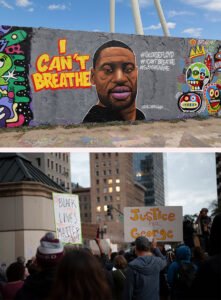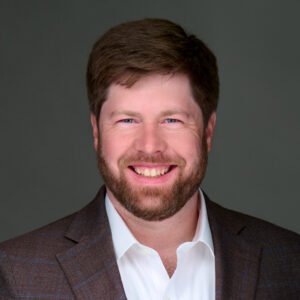Our story
Many origin stories begin with an idea, a calling, or a challenge, and for Dignity Best Practices, it was decades in the making. As a child of missionaries, I grew up in Sao Paulo, Brazil where my parents chose to live amongst the communities they were serving rather than a ‘safer’ gated community. The day we moved into our neighborhood in 1991, we were greeted with warmth — and a warning: “Do not call the police. They do not make things better.” At the age of nine, I had my first introduction to a broken police-community relationship.
“Do not call the police. They do not make things better.”
As I grew older, other public service systems revealed their dark underbelly, too. My sister had chronic health problems, but, like my parents, she believed in living within communities of real people. Instead of a hospital where wealthy and foreign people were seen, she attended the local peoples’ clinic. On one visit, she waited in line in the sun for so long, she experienced severe diarrhea and almost died of dehydration before my mom rushed her to a hospital. Like the police system, the healthcare system was broken and discriminatory.

When I returned to the U.S., I was at first impressed by the quality of public safety and healthcare systems, which far outpaced those of poor communities in Brazil. But as I grew a diverse group of core friends throughout college, I realized that one’s relationship with police and healthcare depended on more nuanced factors, like where you lived, and especially how you looked. The outrage I felt as a kid in Brazil surfaced again as I witnessed the unjust treatment of my friends and community members at the hands of systems that were supposed to be there for them.
Out of college and motivated deeply by public service, I began serving in my local community as much as I could. During this time, I had another pivotal experience, which led me down the path that would eventually become Dignity Best Practices. I was serving as a neighborhood representative and sitting in the lobby of my local police station when a woman entered the station looking for help. She and her boyfriend had an altercation and she wanted an officer to go with her to de-escalate the situation. A policewoman unconcernedly replied, “Do you want us to arrest your boyfriend? If not, you probably don’t want us to come out.” As the woman left without support, I asked the officer why she didn’t refer the woman to an agency or supportive service. The officer scoffed. Social workers were not awake at this hour, she told me, and if they were, they wouldn’t do anything anyway.
As the impact of her words washed over me, the concept for Dignity Best Practices was born in my mind. Someone needed to help local governments design systems and partnerships between agencies that ensured people in crisis received care — and to help eliminate jaded, bureaucratic excuses to not show up for the job. I knew that, collectively, we could do better for people — I just had to figure out how to do it right.
“Do you want us to arrest your boyfriend? If not, you probably don’t want us to come out.”
So I started down a new career path to chase the reality of this dream. My first step was to gain experience with local government from the inside. I began work for Washington, D.C.’s Office of the City Administrator. I also knew I lacked a solid understanding of public safety, so I signed up for the police academy and became a reserve police officer. In these two crucial roles, I quickly learned the struggles of public servants and gained empathy for the challenges they encountered — but above all, this work cemented my belief that important elements of our public safety systems lacked the efficiency to serve people in crisis.

The turning point came in 2020, with the murder of George Floyd. Moved by the expressions of pain from across the country, I knew the time was right to push for change at a national level. I began searching in earnest for a partner to co-found a non-profit that focused on helping local governments learn from each other to better serve vulnerable populations at the intersections of public safety and public health.
“Did you know that first responders sometimes withhold extra NARCAN from those in need because they are afraid of overdosing from skin contact with powdered fentanyl, a fear that turns out to be based in a total myth?” Sam Moorhead said to me, the frustration at a malfunctioning healthcare system palpable in her voice. This was not long after I first met Sam in December 2020, and it was when the adventure truly began. With a human services background in addiction treatment and sexual assault victim advocacy, Sam’s experience complemented my public safety background perfectly. She also had insatiable curiosity and a proven skill for building strong relationships, two of the core principles I needed for this budding organization. We connected over a passion for helping teams be better at serving people who are really struggling.
Together, Sam and I fully established Dignity Best Practices in February of 2021, founding it on the principle that all people deserve dignity, and the firm belief that local governments can and should build impactful, successful public health and public safety systems that speak across department silos. We use our unique stories to encourage our partners in action — from city officials to first responders — to center those they hope to serve with attentiveness and care.
If you have read the full length of this story, I know that you, too, are a partner in this process. Share your insights or work with us to build systems in your own community, so that all of us, citizens and public servants alike, can contribute with dignity.
Sincerely,
Daniel Kornfield
Executive Director
Our Founders


